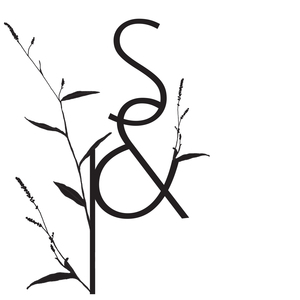Durham, N.C.: Counter Culture Coffee
For Counter Culture Coffee, a roaster based in Durham, N.C., a coffee farm’s involvement in the fair trade system is only so meaningful.
“I think that [fair trade] is an important baseline to have in place. I think smallholders who are part of those organizations are strong and important,” said Kim Elena Ionescu, the company’s coffee buyer and sustainability manager. “I respect fair trade for building that capacity and empowering small farmers.”
Still, Ionescu likens praising fair trade coffee economics to celebrating paying minimum wage to your employees.
“The fair trade certification of a [coffee-growing] co-op would be one of many things that would make us feel good about using that co-op, not the only thing,” said Ionescu.
Of course, Fair trade was a concept built with good intentions.
In 1988, a Dutch developmental agency called Solaridad began purchasing coffee from Mexico to be sold in the supermarkets of Holland. Named Max Havelaar after a hero of Dutch fiction who disputed his country’s exploitation of their colonies, the coffee was sold at rates high enough to justly compensate its Mexican growers. This marked the birth of the first fair trade label.
In the late 1990’s and early 2000’s, coffee was selling for increasingly low prices. Due to unstable governments in the countries producing coffee, overreaching corporate power, an excess in coffee supply, and a lack of quality control, coffee prices sank too low to compensate for the cost of production.
It was the fair trade coffee system that ended up salvaging a crumbling coffee market.
The fair trade certification process offered a way for farmers to distinguish their products in the global market. It gave farmers the tools to create high quality harvests through sustainable means. It allowed them to join co-ops with nearby farms for more support and offered education about more economical means of coffee farming. Most importantly, fair trade certified products were purchased and sold at higher prices.
Marketing for fair trade certified products relies on the positive effect the program has on participating farmers. This leads consumers to buy fair trade coffee with the intent and expectation that they are helping marginalized farmers in developing countries.
But that’s not always the case.
Oftentimes, the strict quality enforcements for fair trade certification increase the overall input cost and decrease the yield of coffee beans for farmers. And this cost increases again drastically when the product must also be certified organic—a process, both in certification and growing time, that is substantially more expensive and generally lower yielding than conventional coffee farming. A 2011 study1 found that certified organic fair trade farmers are more frequently living below the absolute poverty line than conventional coffee farmers.
And as markets for sustainable coffee mature, even lower prices are paid to producers.
The debate between critics and supporters of fair trade aside, it cannot be denied that the concept launched the conversation about what really amounts to rightful compensation for coffee farmers.
Counter Culture Coffee uses the idea of fair trade as a launching pad for their own certification initiative, Direct Trade Certification.
Counter Culture sources coffee from more than 15 different countries across South America, Africa and Asia. In their Direct Trade Certification program, the company maintains compliance with four measures: personal and direct communication with coffee farmers, fair and sustainable prices paid to farmers, exceptional cup quality and supply chain transparency.
“Our relationships and the way that we work with people is what differentiates us,” she said.
By working directly with farmers, Counter Culture builds trust in their partnerships and ensures mutual benefits. The direct contact allows Counter Culture to help producers strengthen their own brand of beans by giving publicity to the farmers and by improving the quality of the farmers’ coffee with new information about growing techniques. Plus, the roaster always encourages the growers they buy from to use ecologically conscientious methods of farming.
Counter Culture openly holds themselves accountable to the consuming public. They produce and publish a yearly transparency report, which documents the coffees they’ve purchased, the prices they paid and the quality scores from each coffee. On top of making information about what they’re doing widely available, they teach people how to do it. At their various locations, Counter Culture offers classes to people interested in learning more about the industry.
Counter Culture is shifting the paradigm of coffee sourcing with a commitment to straightforward values.
“We will communicate well, we will pay high prices and ensure quality,” said Ionescu.
1Beuchelt, Tina D., and Manfred Zeller. 2011. "Profits and poverty: Certification's troubled link for Nicaragua's organic and fairtrade coffee producers." Ecological Economics 70, no. 7: 1316-1324. Academic Search Complete, EBSCOhost (accessed February 12, 2014).
Story by Jodi Cash
Photographs by Paige French

